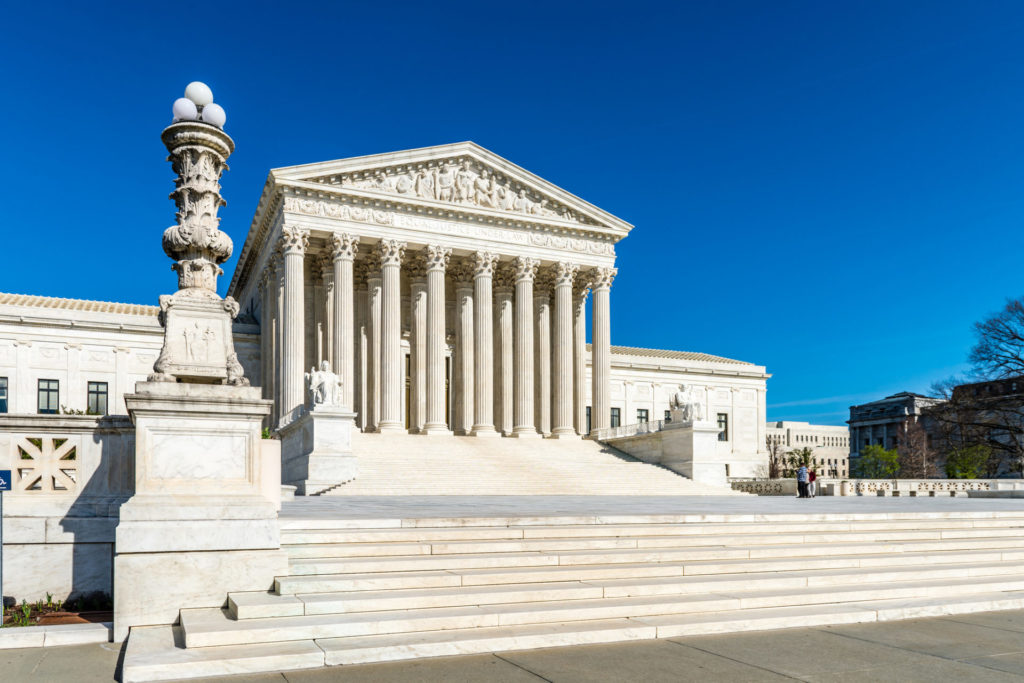Clausen Miller Litigating International Arbitration Issue In The United States Supreme Court

The United States Supreme Court typically accepts fewer than 150 cases for review each year. Clausen Miller is currently litigating one of those rare cases. Outokumpu Stainless USA, LLC et al v. Converteam SAS, No. 18-1048. The CM team includes members of the Appellate Practice Group (Chair Melinda Kollross and Joe Ferrini), First-Party Property Practice (Jim Swinehart and Kelly Jorgenson) and Subrogation Practice (Greg Aimonette and Ken Wysocki). The CM team, together with co-counsel, prevailed in the Eleventh Circuit, which held that the New York Convention on the Recognition and Enforcement of Arbitration Awards (the “Convention”) does not permit non-party, nonsignatories to a contract containing an arbitration provision to use an idiosyncratic U.S. “equitable estoppel” doctrine to compel international arbitration against a party to the contract. (See CM Report 2018 Vol. 4)
Facts
Outokumpu Stainless USA and several of its Insurers sued defendant Converteam SAS, subsequently known as GE Energy Power Conversion France SAS, Corp. (GE France), in Alabama state court seeking damages resulting from the failure of multiple motors designed, manufactured, and supplied by GE France, the electrical subcontractor for construction of three cold rolling (steel) mills in Alabama. GE France removed the action to federal court and sought to compel arbitration in Germany under the Convention based upon an arbitration provision in the general contracts between Outokumpu, the owner, and the general contractor for the construction of the cold rolling mills. GE was neither a named party nor a signatory to the general contracts. The district court held that GE qualified as a party to the general contracts and entered an order compelling arbitration.
The Eleventh Circuit reversed, agreeing with Outokumpu and the Insurers that GE did not qualify as a party to the general contracts, and could not compel arbitration because it was not a signatory or in privity with a party to the general contracts containing the arbitration clause it was trying to enforce.
GE filed a petition for a writ of certiorari, which the Supreme Court granted in June 2019.
Analysis
GE argues that equitable estoppel—an idiosyncratic U.S. doctrine available under certain U.S. state’s laws to compel domestic arbitration by or against non-signatories under Chapter 1 of the Federal Arbitration Act (“FAA”) should apply to international arbitration under the Convention as implemented by FAA Chapter 2. GE claims that because the Convention allows treaty members to use more favorable domestic laws to enforce arbitration awards the Convention itself would not enforce— the Convention drafters must have likewise intended to allow countries to use their domestic laws to liberally enforce arbitration agreements. GE also stresses the federal policy favoring arbitration in asking the Supreme Court to rule in their favor.
In response, Outokumpu and its Insurers argue that consent to arbitration is fundamental. This is demonstrated by the language of the Convention itself—which expressly requires either an agreement in writing signed by the parties or an exchange of letters or telegrams documenting the parties’ consent to arbitration. It is additionally supported by the Convention’s drafting history, which contains the comments of drafters from many nations emphasizing that there must be written evidence of consent to arbitrate by the parties seeking to compel arbitration or against whom arbitration is to be compelled. Equitable estoppel, which is not recognized in civil law countries and takes variant forms in common law nations, cannot be used to compel arbitration in the absence of consent. Reading the Convention as GE suggests allows those who never agreed or intended to give up their litigation rights to be forced into arbitration in a foreign land under foreign laws without their consent—a dangerous proposition. The Convention’s basic requirements are mandatory and give businesses predictability as to when they will be subject to arbitration. This stability and certainty in turn serves to encourage companies to agree to arbitrate and is the true proarbitration position.
Further Proceedings: This case is set for oral argument before the United States Supreme Court on January 21, 2020. We will report further following oral argument and again once the Supreme Court issues a decision, which we expect by June 2020.
 Melinda S. Kollross
Melinda S. Kollross Private: Edward M. Kay
Private: Edward M. Kay Joseph J. Ferrini
Joseph J. Ferrini Private: James R. Swinehart
Private: James R. Swinehart Kelly A. Jorgensen
Kelly A. Jorgensen Private: W. Gregory Aimonette
Private: W. Gregory Aimonette Private: Kenneth R. Wysocki
Private: Kenneth R. Wysocki